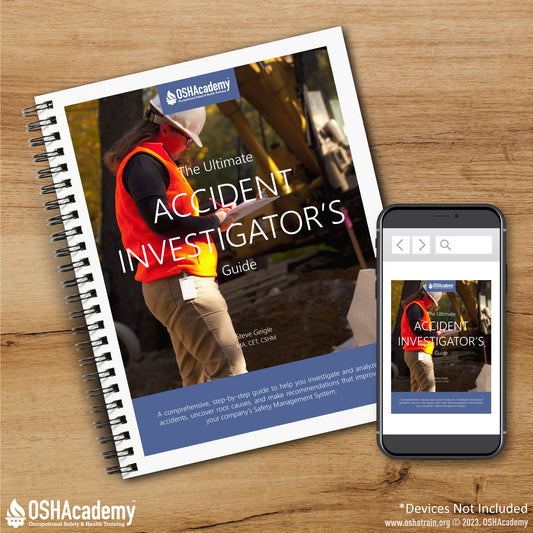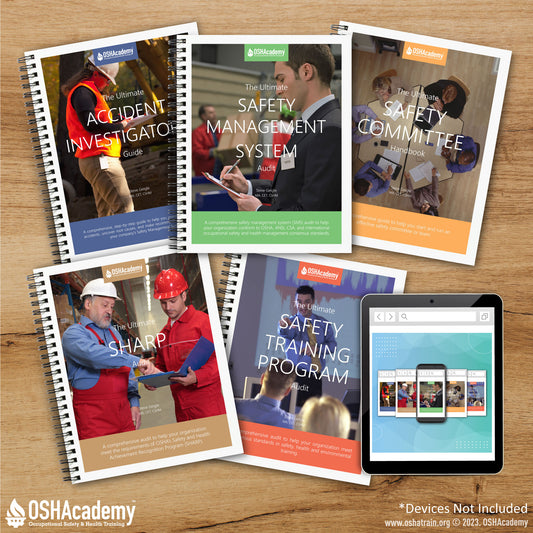
Understanding OSHA 10- and 30-Hour Training Requirements
Share
By Abbie Geigle
The OSHA 10- and 30-hour Outreach Training Programs are popular across a wide range of industries for promoting workplace safety. These courses help workers and supervisors recognize hazards, understand basic OSHA standards, and take steps to prevent injuries. When completed through an authorized trainer, participants receive a wallet-sized Department of Labor (DOL) OSHA card—often seen as a badge of safety training.
But here's the key question: Is that DOL card required?
The answer: Usually not. While OSHA Outreach training is valuable, most workers in the United States are not legally required to have a DOL card. Whether one is necessary depends on a combination of state laws, specific project requirements, and employer or union policies.
The OSHA Outreach Training Program Is Voluntary
According to OSHA, its Outreach Training Program is a voluntary initiative. OSHA clearly states:
“The program is voluntary and does not meet training requirements in any OSHA standard. Some states, employers, unions, organizations, or other jurisdictions may require this training.”
— OSHA Outreach FAQ
The intent behind Outreach training is to raise general awareness—not to serve as a substitute for OSHA’s legally required, hazard-specific training. Employers are still responsible for providing job-specific safety instruction as required under OSHA regulations.
For further reference:
- Outreach Training Overview
- Outreach Program Requirements (PDF)
- Training Requirements in OSHA Standards (PDF)
When a DOL Card Is Required
While OSHA does not mandate Outreach training or DOL cards at the federal level, some states, municipalities, and employers do -- especially in the construction industry or on publicly funded projects. Below is a list of states and larger municipalities that require DOL cards:
- New York, Nevada, and Rhode Island require OSHA 10- or 30-hour training for workers on state-funded construction projects.
- New York City goes further by requiring additional Site Safety Training (SST) for most construction workers.
- Other states like Connecticut, Massachusetts, Missouri, and West Virginia have similar requirements for workers on public works or government-funded construction jobs.
- Philadelphia and Miami-Dade County (FL) also enforce local OSHA training mandates.
- Nevada uniquely extends requirements to the entertainment industry, with OSHA 10- and 30-hour cards required for workers and supervisors, respectively.
These mandates are jurisdiction-specific and vary by job type, project funding, or industry. Always check local regulations or contract language to determine whether Outreach training—and a DOL card—is required.
When a DOL Card Is Not Necessary
For most workplaces in the U.S., especially those outside of construction or not operating under a state mandate, the DOL card is not required. Employers in these settings simply need to ensure that their workers receive training aligned with OSHA standards—something that can often be accomplished through internal programs or third-party training providers.
As OSHA emphasizes:
“Outreach Training does not meet the training requirements contained in OSHA standards. Employers are responsible for providing additional training for their workers on specific hazards of their job as noted in many OSHA standards.”
— OSHA Outreach Overview
| Scenario | DOL Card Required? | Notes |
|---|---|---|
| Public contracts or federally funded projects | Yes | May be required by the contract terms |
| State/local law mandates (e.g., NY, NV, RI construction) | Yes | Jurisdiction-specific mandates apply |
| Union or contractor policy | Yes | Enforced by employer or project owner |
| General employment in most U.S. industries | No | OSHA-aligned training suffices; DOL card not required |
Final Thoughts
The OSHA 10- and 30-hour Outreach programs are excellent tools for improving safety awareness, but a DOL card is not universally required. In fact, most workers in the U.S. are not legally obligated to carry one.
Instead, it's typically a matter of state law, project funding, or employer/union policy. That’s why it’s so important for both employers and workers to confirm what’s truly required before assuming that OSHA Outreach training is necessary for compliance.
If you determine that a DOL card isn’t required for your workforce or project, you still have the option—and responsibility—to provide meaningful safety education.
Where OSHAcademy Fits In
For employers and workers who don’t need an official DOL card, OSHAcademy’s 10- and 30-hour training programs offer a high-quality option. The training is available entirely online, covers key safety topics for both general industry and construction, and includes certificates and transcripts that can be used to document safety training. In fact, OSHAcademy’s programs are equivalent to the OSHA 10- and 30-hour Outreach Training Program, giving employers confidence that their teams are receiving the same level of workplace safety education without the DOL card requirement. Learn more in the OSHAcademy 10- and 30-Hour Training Comparison Guide (PDF).




8 comments
I appreciated the content and it’s very helpful.
I appreciated the content and it’s very helpful.
how much is the training
No
No